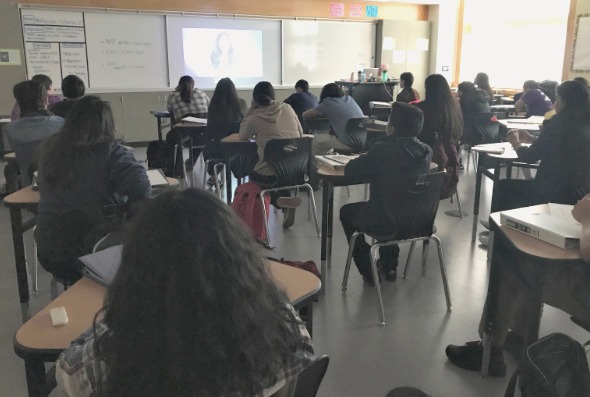Summer school begs the question: do students effectively learn a year’s worth of material in a period of several weeks? The answer is no. It is impossible to teach a year’s worth of content in a few weeks, that much is obvious. So, what is the point of summer school?
First, summer school is a second opportunity for students to earn the credits necessary for graduation and college enrollment. There are multiple reasons for which a student might fail a class during the year. They might have had a family emergency that forced them to be out of school for a significant period of time. Some students are compelled to work during school hours because the need for a paycheck at the end of the month is more pressing than the need for a high school diploma for their families in the short-term. Some students must act as step-ins for single mothers or single fathers, and cannot come to school because they are babysitting, and in some cases, they are parenting their siblings in place of the working parent. These circumstances are real, and sometimes the results are a failing grade at the end of the year. Summer school gives these students a second chance to work through some of the material covered in the year, and it provides them an opportunity to earn the credit necessary to graduate.
Second, summer school is a time when idealistic teaching and learning happens. Idealistic learning in the classroom guides both teachers and students towards the essential questions covered throughout the year. Summer school provides those same questions to be posed to students, and the questions challenge students during summer just as they challenge students throughout the year. Students must show mastery of the content, and will normally do so through a limited number of assessments. The year-long process of learning the same ideas covered during summer is an opportunity for deeper understanding, but the goal is to have students attain the basic content, and provide the tools needed to deepen the content the following year.
It goes without saying that idealistic teaching is not the best teaching philosophy precisely because of its lack of depth. Although idealistic teaching can be superficial, it is undeniable that basic knowledge of content is to be favored in contrast to its alternative. In other words, it is better to know a little information about a topic rather than remaining completely ignorant.
I attended summer school as a sophomore and junior in high school. I failed multiple classes my freshman and sophomore year because, as a first-generation college-bound student, I did not know that colleges would consider my grades as a requirement to be admitted into their collegiate programs. I thought that college was a place you simply paid to go to, no questions asked. It wasn’t until mid-way through my sophomore year that I was told how important it is to have the correct number of credits in order to be admitted into college. By this time, I had failed many classes, but summer school was a gradesaver, an opportunity to mend my mistakes — mistakes that resulted from my lack of knowledge of the college acceptance process. Summer school gave me a second chance to earn my credits and attend university where I received my major and am now a high school teacher at my alma mater. Summer school was a huge help for my success, and I believe that it continues to play a vital role for our students’ future.
Robel Espino
Latest posts by Robel Espino (see all)
- Parte 2, Explorando las Ideas de Jeffrey Duncan-Andrade: La Política y la Economía del Fracaso - December 18, 2019
- Part 2, Exploring Jeffrey Duncan-Andrade’s Ideas:The Politics and Economics of Failure - December 16, 2019
- Explorando Las Ideas de Jeffrey Duncan-Andrade, Parte 1: El Sistema de Educación Urbana, No Está Fallando - December 3, 2019
- Exploring Jeffrey Duncan-Andrade’s Ideas, Part 1: The Urban Education System Is Not Failing - November 26, 2019
- Estudio Sugiere Que las Lecturas en el Aula No Son Muy Efectivas, Pero Mis Alumnos y Yo las Amamos - November 22, 2019

